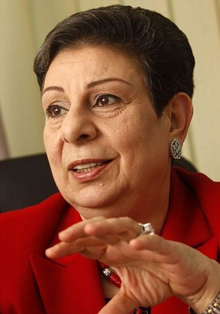Antonio Alonso
Professor at the University San Pablo CEU
Systemic forced labor and child labour has come to an end in Uzbekistan. With this headline the International Labor Organization (ILO) cleared in a Report of February of this year 2021 any doubt that might exist in this field. After many years of diplomatic effort, international pressure and work on the part of the Uzbek authorities, the time has come to give this good news.
A hangover from the past
There is a mistaken belief that cotton cultivation began in Uzbekistan with the Soviets. The reality is that it was the Chinese, more than two thousand years ago, who began to plant and work these lands to produce the so-called “white gold”. In fact, when these lands were later occupied by the Tsarist Empire, the brilliant photographer Sergey Prokudin-Gorski immortalized in color entire fields dedicated to this plant. It is true that the years following the Bolshevik Revolution brought the intensification of this crop, making Uzbekistan a leader in cotton production.
Thus, every year it is among the top ten world producers, a position that varies due to many factors. For example, in 2013 it was in eighth position, in 2017 in fifth and in 2020 in sixth, producing 762,000 metric tons, behind (in thousands of metric tons) India’s 6,423, China’s 5,933, the USA’s 4,336, Brazil’s 2,918 and Pakistan’s 1,350. It is, therefore, a very competitive market that feeds the ever-booming textile industry.
Apart from the numbers, cotton cultivation has also had an impact on the traditions, culture and mentality of the people who depend on this plant. In agrarian societies, and Spain was one until just 60 years ago, work begins at a very early age and each child of the (usually) extended families collaborate in the multiple tasks, especially at harvest time.
New times
But nowadays, it no longer seems acceptable for children to leave school to go to the cotton harvest, or for teachers and doctors to leave their jobs to go to the fields. This was brought home to Uzbekistan’s political leaders for years through regular reports and diplomatic meetings. And already in 2014 Islam Karimov decided to promote the mechanization of the cotton harvest, so that Uzbekistan has gradually been able to comply with what was requested from international bodies, including the International Labour Organization (ILO), the US and even the EU.
It was under the mandate of President Mirziyoyev that Uzbekistan has seen the ILO issue a favorable report on the eradication of forced labor and child labor in the Central Asian country, widely recognized by various human rights NGOs, which has also allowed it to access the Generalised Scheme of Preferences Plus (GSP+), which, in exchange for the GSP+, allows Uzbekistan to obtain the right to use the GSP+, In exchange for complying with 27 international conventions related to human rights, labor rights, environmental protection and good governance, Uzbekistan enjoys a total elimination of customs duties on two thirds of tariff lines, thus favoring trade between Uzbekistan and the EU. These benefits came into effect on April 10.
Savkat Mirziyoyev has very cleverly combined the demands of various governments and international organizations with the sustainable development of the country in an economic sector that is so sensitive to the country’s wealth. The fruits of his multi-year strategy “Development Strategy of Uzbekistan in Five Areas (2017-2021)”, dedicated this year to the education and training of youth, are beginning to be seen.
This new mindset is gradually catching on among Uzbek political leaders, such as Tanzila Narbaeva, Chairwoman of the Senate of Uzbekistan and of the National Commission on Forced Labour and Human Trafficking: “Forced labor is not only socially and morally wrong, it is a serious violation of human rights and a crime in Uzbekistan […] To change behaviour, it is necessary to change people’s way of thinking. We make it possible by working together as legislators, government officials, employers, trade unions and civil society activists.”
© All rights reserved






